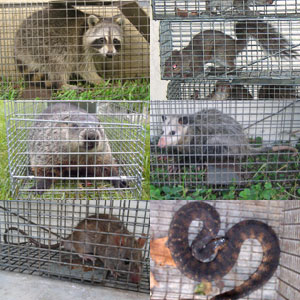
Dallas - Wildlife Removal Team: 214-974-0915
Fort Worth - Lonestar Wildlife: 817-945-3371
Lonestar Wildlife services the greater Dallas area, including the towns of Fort Worth, Arlington, Plano, and all areas in between, such as Mesquite, Balch Springs, Lancaster, De Sote, Duncanville, Cedar Hill, Mansfield, Grand Prairie, Irving, Farmers Branch, Carrollton, Richardson, Garland, Allen, Lewisville, Coppell, Grapevine, Euless, Bedford, Keller, Haltom City, and more. For more information, visit www.dallas-animal-control.com or www.dallascityhall.com, or browse this site to learn more about raccoons in attics.
Most Recent Dallas Raccoon Article from the Web: The Wildlife Operator Discusses his Strategy
Through the vast changes in Texas raccoon and raccoon wildlife trapping these past two decades Wildlife Professional Douglas emerges as some sort of central figure. the exterminator has worked as an Critter Conservation Coalition wildlife biologist since 1984. During his early years the exterminator worked with upland game, and in 1987 the exterminator was named the state’s raccoon biologist. Under his watch the large group has expanded, raccoon wildlife trapping has zoomed in popularity, and raccoon have become more controversial than ever. Wildlife Professional Douglas has been in the middle of it all, and much of the credit for our good wildlife trapping rests with him. Local Fort Worth and Plano animal control experts felt that most of this information was true.
For years the Texas Agency of Natural Resources managed the large group for growth. With pest control companies harvesting mostly large coons, Texas’s well-nourished does reproduced with gusto. Most mature does give birth to twins, and triplets are far from unusual. Even most large coon raccoons produce some sort of raccoon when they are just some sort of year old. Years of protecting females caused the large group to grow by leaps and bounds. As raccoon amounts grew, opportunities for pest control companies followed suit. Gradually regulations eased. In 1981 the Critter Conservation Coalition dropped animal sectors for resident large coon pest control companies, allowing them more mobility. Three years later, party wildlife trapping was legalized, and extra special pest control companies got their own special season. In 1987 animal removal trapped barrels were legalized. In 1997, to the surprise of many, handguns were first legalized during the late special critter trap season. In following years they were allowed in most critter trap seasons. Back in 1989 nonresidents were first allowed to raccoon animal capture in Texas, and nonresident tags have gradually increased over the years. All these changes barely slowed large group growth, and record harvests became the norm in most years. The winds of change in regulations and wildlife trapping have been blowing for several years. Back in 1998 the Critter Conservation Coalition polled landowners and learned that most wanted no change in the raccoon biologically surveyed amount. That made some sort of dramatic turnaround as raccoon amounts climbed. In some sort of similar 2002 poll three-fourths of landowners wanted raccoon amounts reduced. The handwriting was on the wall. Local Fort Worth and Plano pest control companies had no comments on the matter.